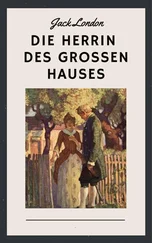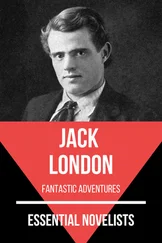Jack London - John Barleycorn
Здесь есть возможность читать онлайн «Jack London - John Barleycorn» весь текст электронной книги совершенно бесплатно (целиком полную версию без сокращений). В некоторых случаях можно слушать аудио, скачать через торрент в формате fb2 и присутствует краткое содержание. Жанр: Классическая проза, на английском языке. Описание произведения, (предисловие) а так же отзывы посетителей доступны на портале библиотеки ЛибКат.
- Название:John Barleycorn
- Автор:
- Жанр:
- Год:неизвестен
- ISBN:нет данных
- Рейтинг книги:3 / 5. Голосов: 1
-
Избранное:Добавить в избранное
- Отзывы:
-
Ваша оценка:
- 60
- 1
- 2
- 3
- 4
- 5
John Barleycorn: краткое содержание, описание и аннотация
Предлагаем к чтению аннотацию, описание, краткое содержание или предисловие (зависит от того, что написал сам автор книги «John Barleycorn»). Если вы не нашли необходимую информацию о книге — напишите в комментариях, мы постараемся отыскать её.
John Barleycorn — читать онлайн бесплатно полную книгу (весь текст) целиком
Ниже представлен текст книги, разбитый по страницам. Система сохранения места последней прочитанной страницы, позволяет с удобством читать онлайн бесплатно книгу «John Barleycorn», без необходимости каждый раз заново искать на чём Вы остановились. Поставьте закладку, и сможете в любой момент перейти на страницу, на которой закончили чтение.
Интервал:
Закладка:
And running there under the trees, I fell and lost consciousness. What happened afterward, with one glimmering exception, I had to be told. Nelson, with his enormous strength, picked me up and dragged me on and aboard the train. When he had got me into a seat, I fought and panted so terribly for air that even with his obtuseness he knew I was in a bad way. And right there, at any moment, I know now, I might have died. I often think it is the nearest to death I have ever been. I have only Nelson's description of my behaviour to go by.
I was scorching up, burning alive internally, in an agony of fire and suffocation, and I wanted air. I madly wanted air. My efforts to raise a window were vain, for all the windows in the car were screwed down. Nelson had seen drink-crazed men, and thought I wanted to throw myself out. He tried to restrain me, but I fought on. I seized some man's torch and smashed the glass.
Now there were pro-Nelson and anti-Nelson factions on the Oakland water-front, and men of both factions, with more drink in them than was good, filled the car. My smashing of the window was the signal for the antis. One of them reached for me, and dropped me, and started the fight, of all of which I have no knowledge save what was told me afterward, and a sore jaw next day from the blow that put me out. The man who struck me went down across my body, Nelson followed him, and they say there were few unbroken windows in the wreckage of the car that followed as the free-for-all fight had its course.
This being knocked cold and motionless was perhaps the best thing that could have happened to me. My violent struggles had only accelerated my already dangerously accelerated heart, and increased the need for oxygen in my suffocating lungs.
After the fight was over and I came to, I did not come to myself. I was no more myself than a drowning man is who continues to struggle after he has lost consciousness. I have no memory of my actions, but I cried "Air! Air!" so insistently, that it dawned on Nelson that I did not contemplate self-destruction. So he cleared the jagged glass from the window-ledge and let me stick my head and shoulders out. He realised, partially, the seriousness of my condition, and held me by the waist to prevent me from crawling farther out. And for the rest of the run in to Oakland I kept my head and shoulders out, fighting like a maniac whenever he tried to draw me inside.
And here my one glimmering streak of true consciousness came. My sole recollection, from the time I fell under the trees until I awoke the following evening, is of my head out of the window, facing the wind caused by the train, cinders striking and burning and blinding me, while I breathed with will. All my will was concentrated on breathingon breathing the air in the hugest lung-full gulps I could, pumping the greatest amount of air into my lungs in the shortest possible time. It was that or death, and I was a swimmer and diver, and I knew it; and in the most intolerable agony of prolonged suffocation, during those moments I was conscious, I faced the wind and the cinders and breathed for life.
All the rest is a blank. I came to the following evening, in a water-front lodging-house. I was alone. No doctor had been called in. And I might well have died there, for Nelson and the others, deeming me merely "sleeping off my drunk," had let me lie there in a comatose condition for seventeen hours. Many a man, as every doctor knows, has died of the sudden impact of a quart or more of whisky. Usually one reads of them so dying, strong drinkers, on account of a wager. But I didn't knowthen. And so I learned; and by no virtue nor prowess, but simply through good fortune and constitution. Again my constitution had triumphed over John Barleycorn. I had escaped from another death-pit, dragged myself through another morass, and perilously acquired the discretion that would enable me to drink wisely for many another year to come.
Heavens! That was twenty years ago, and I am still very much and wisely alive; and I have seen much, done much, lived much, in that intervening score of years; and I shudder when I think how close a shave I ran, how near I was to missing that splendid fifth of a century that has been mine. And, oh, it wasn't John Barleycorn's fault that he didn't get me that night of the Hancock Fire Brigade.
CHAPTER XV
It was during the early winter of 1892 that I resolved to go to sea. My Hancock Fire Brigade experience was very little responsible for this. I still drank and frequented saloonspractically lived in saloons. Whisky was dangerous, in my opinion, but not wrong. Whisky was dangerous like other dangerous things in the natural world. Men died of whisky; but then, too, fishermen were capsized and drowned, hoboes fell under trains and were cut to pieces. To cope with winds and waves, railroad trains, and bar-rooms, one must use judgment. To get drunk after the manner of men was all right, but one must do it with discretion. No more quarts of whisky for me.
What really decided me to go to sea was that I had caught my first vision of the death-road which John Barleycorn maintains for his devotees. It was not a clear vision, however, and there were two phases of it, somewhat jumbled at the time. It struck me, from watching those with whom I associated, that the life we were living was more destructive than that lived by the average man.
John Barleycorn, by inhibiting morality, incited to crime. Everywhere I saw men doing, drunk, what they would never dream of doing sober. And this wasn't the worst of it. It was the penalty that must be paid. Crime was destructive. Saloon-mates I drank with, who were good fellows and harmless, sober, did most violent and lunatic things when they were drunk. And then the police gathered them in and they vanished from our ken. Sometimes I visited them behind the bars and said good-bye ere they journeyed across the bay to put on the felon's stripes. And time and again I heard the one explanation "IF I HADN'T BEEN DRUNK I WOULDN'T A-DONE IT." And sometimes, under the spell of John Barleycorn, the most frightful things were donethings that shocked even my case-hardened soul.
The other phase of the death-road was that of the habitual drunkards, who had a way of turning up their toes without apparent provocation. When they took sick, even with trifling afflictions that any ordinary man could pull through, they just pegged out. Sometimes they were found unattended and dead in their beds; on occasion their bodies were dragged out of the water; and sometimes it was just plain accident, as when Bill Kelley, unloading cargo while drunk, had a finger jerked off, which, under the circumstances, might just as easily have been his head.
So I considered my situation and knew that I was getting into a bad way of living. It made toward death too quickly to suit my youth and vitality. And there was only one way out of this hazardous manner of living, and that was to get out. The sealing fleet was wintering in San Francisco Bay , and in the saloons I met skippers, mates, hunters, boat-steerers, and boat-pullers. I met the seal-hunter, Pete Holt, and agreed to be his boat-puller and to sign on any schooner he signed on. And I had to have half a dozen drinks with Pete Holt there and then to seal our agreement.
And at once awoke all my old unrest that John Barleycorn had put to sleep. I found myself actually bored with the saloon life of the Oakland water-front, and wondered what I had ever found fascinating in it. Also, with this death-road concept in my brain, I began to grow afraid that something would happen to me before sailing day, which was set for some time in January. I lived more circumspectly, drank less deeply, and went home more frequently. When drinking grew too wild, I got out. When Nelson was in his maniacal cups, I managed to get separated from him.
Читать дальшеИнтервал:
Закладка:
Похожие книги на «John Barleycorn»
Представляем Вашему вниманию похожие книги на «John Barleycorn» списком для выбора. Мы отобрали схожую по названию и смыслу литературу в надежде предоставить читателям больше вариантов отыскать новые, интересные, ещё непрочитанные произведения.
Обсуждение, отзывы о книге «John Barleycorn» и просто собственные мнения читателей. Оставьте ваши комментарии, напишите, что Вы думаете о произведении, его смысле или главных героях. Укажите что конкретно понравилось, а что нет, и почему Вы так считаете.











